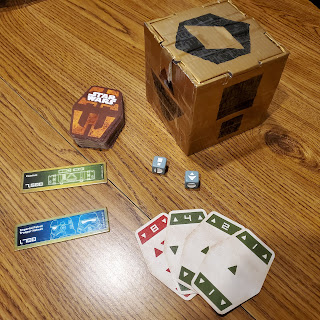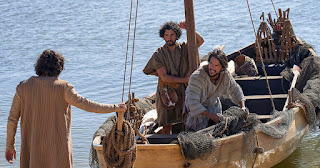Have Fun Storming the Castle: What The Princess Bride Taught Me About Life
My fandom of The Princess Bride goes back to my childhood. It wasn't like Star Wars, which I watched all the time, and which remained at the forefront of my geekdom for pretty much my whole life (see My Star Wars Fandom). The Princess Bride was just one of the many movies I watched from time to time as a child. I really liked it - my friends and I would even reenact the Westley/Inigo swordfight, switching hands halfway through the fight with the revelation that "I am not left-handed!" - but it completely disappeared from my radar when I started getting older.
I rediscovered my love of this movie in college, when I was surprised to learn that most of my friends had grown up loving it as well. I'd hear friends and acquaintances quoting the movie.
"Hello, my name is Inigo Montoya. You killed my father. Prepare to die."
"Anybody want a peanut?"
"Inconceivable!"
"You keep using that word. I do not think it means what you think it means."
"Have fun storming the castle!"
When my wife and I went to Minneapolis Comic Con last year (my first convention!), I dressed up as Westley (my first cosplay!). Pretty much everyone we bumped into recognized my character. (Well, a couple of people thought I was Zorro, but that's understandable.)
The Value of Fairy Tales
Why does this movie resonate so much? For one thing, it's hilarious. But I don't think I grasped all the humor when I was a kid. Something else about the movie captured me. Beneath the witty dialogue, there's an earnest, fairy tale quality. Good defeats evil, and true love prevails.
Many people dismiss these kinds of stories as unrealistic and escapist. Movies, books, and television should "tell it like it is." This criticism is nothing new. J.R.R. Tolkien actually heard complaints like this from his friend C.S. Lewis. He responded with a poem called "Mythopoeia."
Yes! 'wish-fulfillment dreams' we spin to cheat
our timid hearts and ugly Fact defeat!He admits that these kind of stories are, in a sense, wish fulfillment. They are an escape. But what's wrong with that?
Blessed are the timid hearts that evil hate,
that quail in its shadow, and yet shut the gate.Sometimes life sucks (my words, not Tolkien's), and it's okay to seek an escape, while setting our sights on our ultimate destination: heaven. The world of a fairy tale does not represent the world as it is, but as it should be. Our world is fallen because of Sin, but we are destined for eternal happiness.
We can see this theme woven into The Princess Bride through the frame narrative. When the grandfather narrates Buttercup's dream that she had already married Humperdinck, the grandson interrupts: "You read that wrong. She doesn't marry Humperdinck, she marries Westley. I'm just sure of it. . . I'm telling you, you're messing up the story. Now get it right!"
Our instincts tell us that life should work a certain way, that it should be fair. But in reality, life is often anything but fair. Fairy tales give us a glimpse of heaven, either by leaving out bad events that would "realistically" happen, or by resolving bad situations into happy endings. This is done most dramatically with eucatastrophe, one of Tolkien's (and my) favorite narrative devices. (I go into a lot more detail about eucatastrophe in Christmas: The Eucatastrophe of Human History.) In The Princess Bride, Buttercup - thinking that she had married Humperdinck and that Westley had not come for her - enters her room in despair, only to find Westley waiting there for her.
Geek Pick: The Princess Bride
I am a participant in the Amazon Services LLC Associates Program, an affiliate advertising program designed to provide a means for sites to earn advertising fees by advertising and linking to Amazon.com. This means my reviews, GCD Picks, and some other posts include links to Amazon in case you want to buy the product after reading my review. If you do make a purchase via my affiliate link, I'll get a few cents.
This movie is occasionally available on subscription streaming platforms (such as Netflix and Amazon), but at the time I'm writing this, I couldn't find it anywhere. Fortunately, the Blu-ray is pretty reasonably priced on Amazon. You can find it here.
Conclusion
Thanks for reading! If you like my blog, and you'd like to receive emails each time I upload a new post, you can enter your email address below. Or, you can "Like" or "Follow" GCD's Facebook page here. Find me on Twitter here. What's your favorite part of The Princess Bride? If you want to express an opinion, ask a question, or give feedback about this post or others, feel free to leave a comment below, or email me at geekycatholicdad@gmail.com.
If you would like to send a few pennies my way (which I use to pay for hosting the site), you can use my Amazon links to purchase any of the items I have recommended, or anything at all from Amazon. Alternatively, you can click the Amazon link here, and then proceed with your Amazon shopping.
Update: You can find Part 2 of my look at The Princess Bride here:
As You Wish: What The Princess Bride Taught Me About Love




Comments
Post a Comment